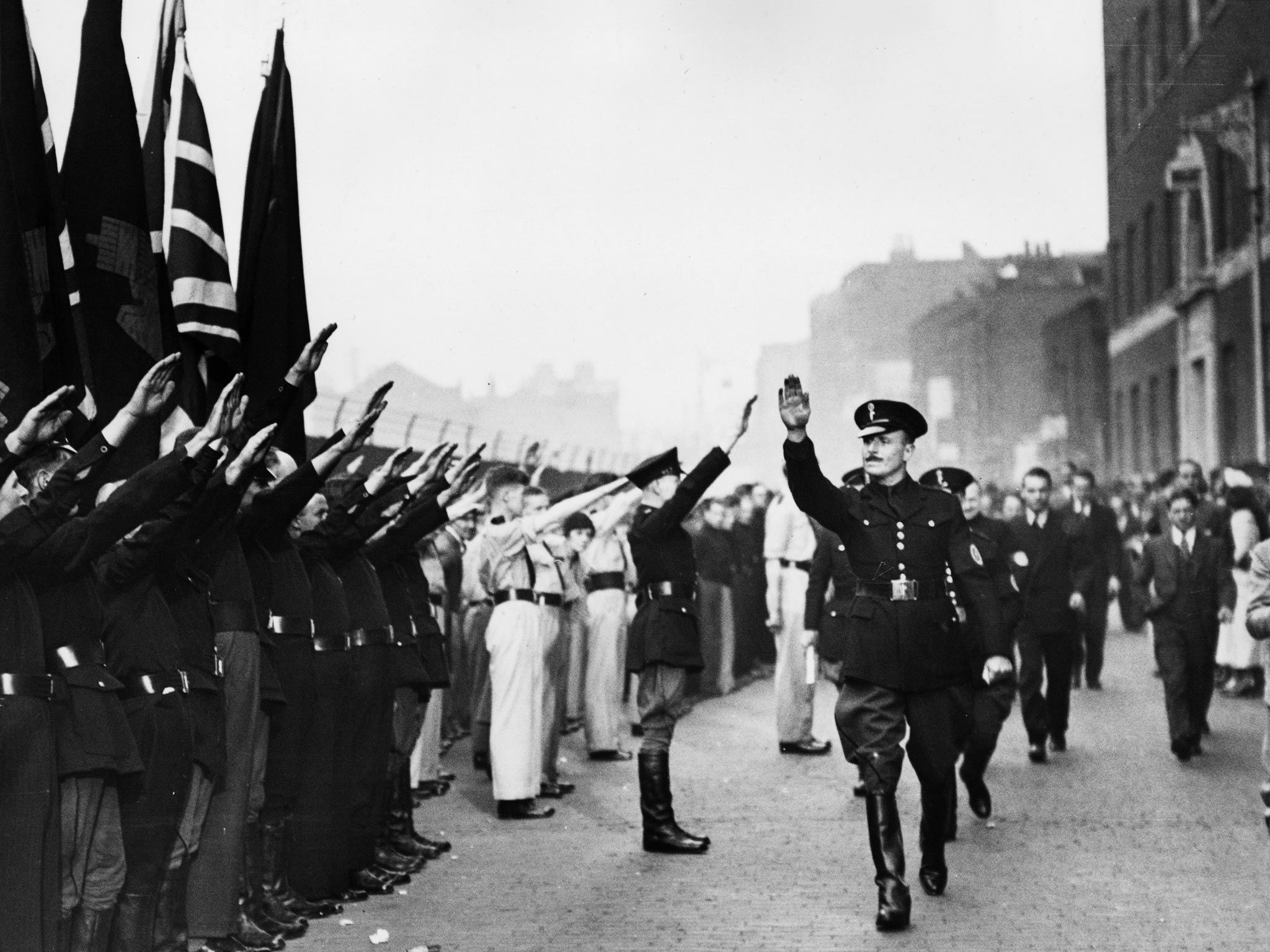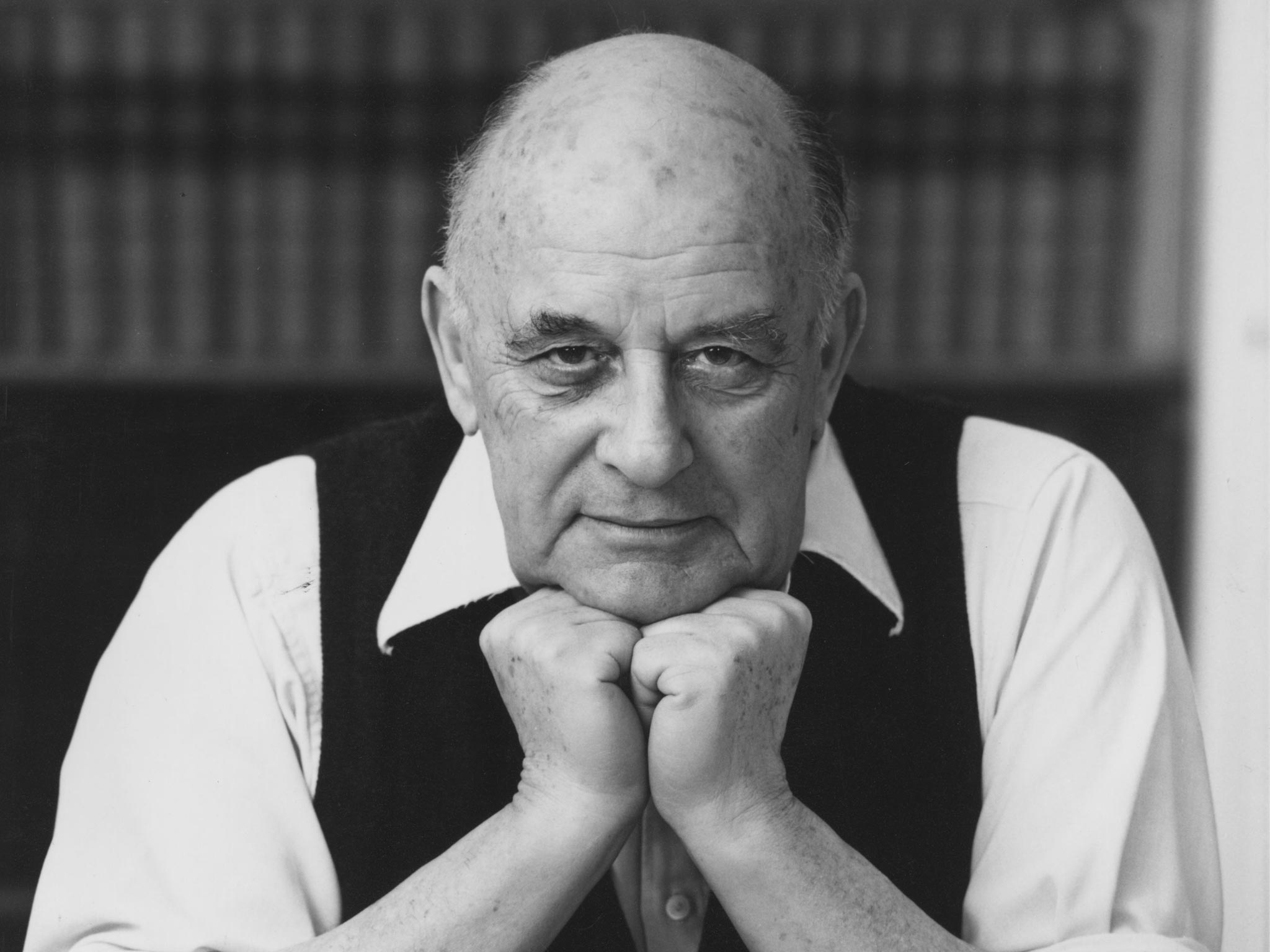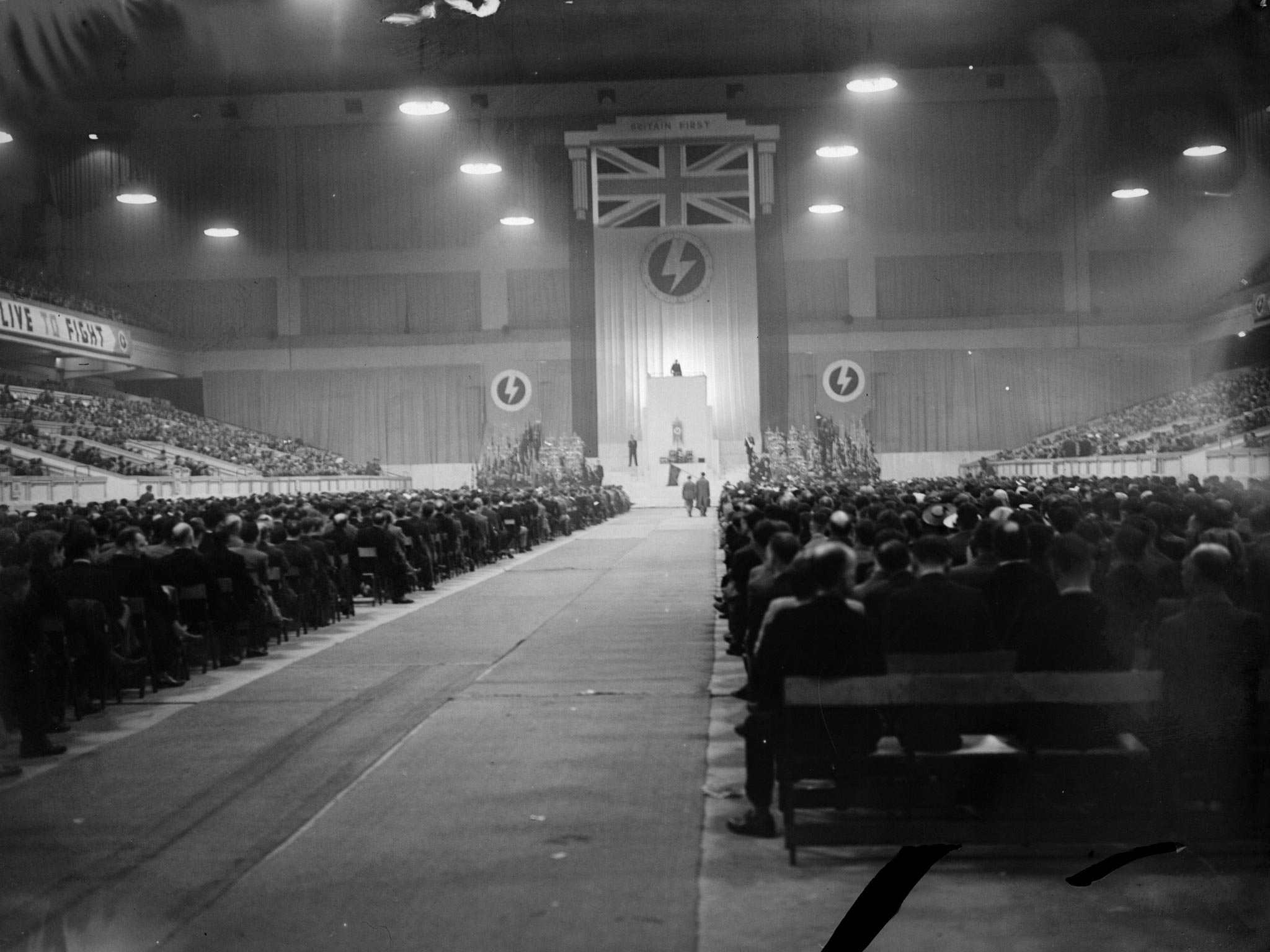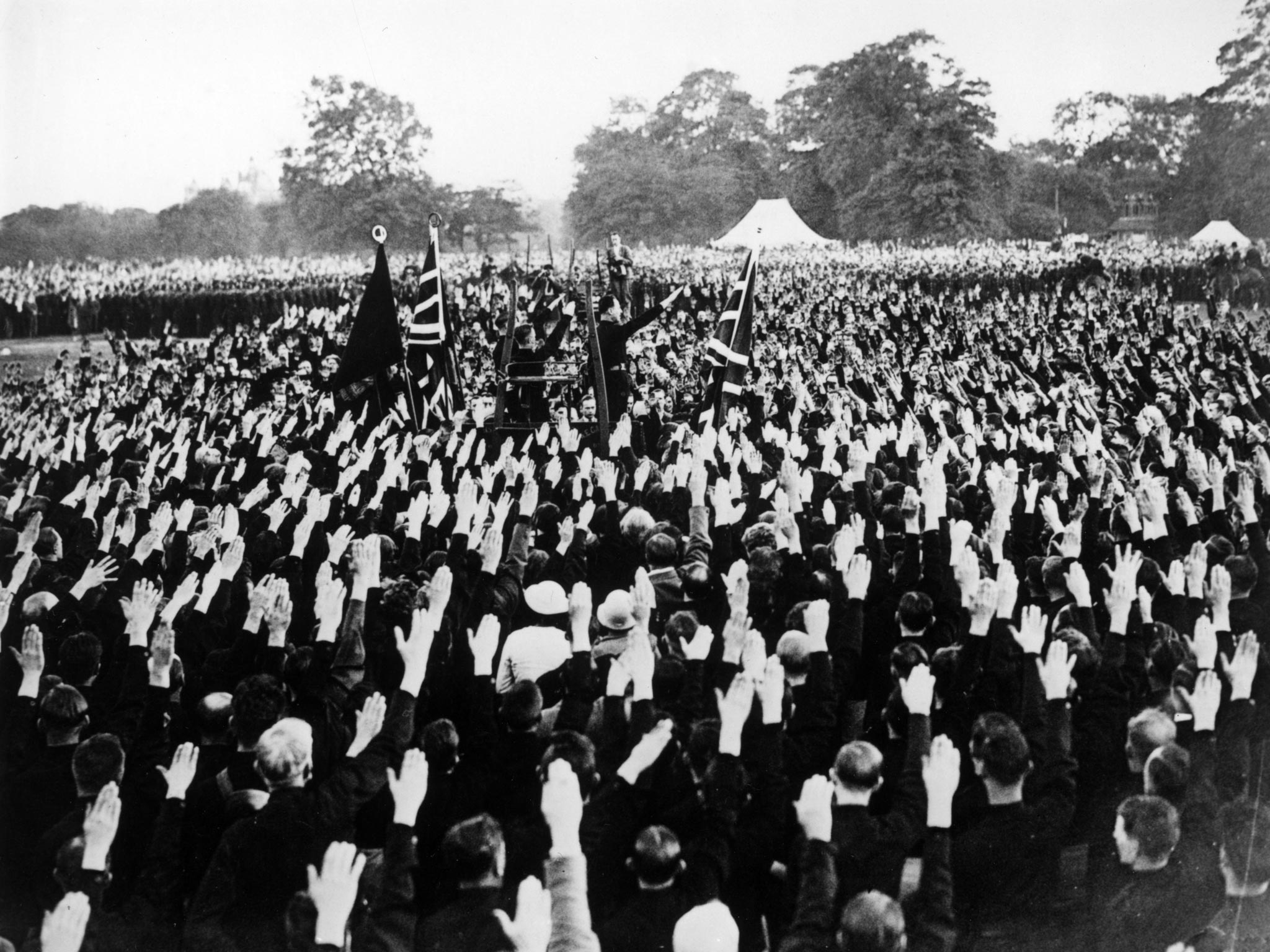Enemy within: The network of Britons who spied for Hitler during Second World War
Newly released papers show that hundreds of people in wartime Britain secretly worked for the Nazis – or would have done, had MI5 not outwitted them

Your support helps us to tell the story
From reproductive rights to climate change to Big Tech, The Independent is on the ground when the story is developing. Whether it's investigating the financials of Elon Musk's pro-Trump PAC or producing our latest documentary, 'The A Word', which shines a light on the American women fighting for reproductive rights, we know how important it is to parse out the facts from the messaging.
At such a critical moment in US history, we need reporters on the ground. Your donation allows us to keep sending journalists to speak to both sides of the story.
The Independent is trusted by Americans across the entire political spectrum. And unlike many other quality news outlets, we choose not to lock Americans out of our reporting and analysis with paywalls. We believe quality journalism should be available to everyone, paid for by those who can afford it.
Your support makes all the difference.To his circle of fervent recruits, he was “Jack King” – the Gestapo’s man in England. While Britons rallied to war against Hitler in 1940, the masterful Nazi agent toured the country signing up those who could be trusted to show their loyalty to the Fatherland when the time came.
For five years, King evaded detection as he built up a coterie of committed and ruthless British Nazis ranging from provincial engineers, to an astrologer, to a Catholic priest. In return, they provided him with some of the most sensitive secrets of Britain’s war machine, from details of the first jet fighter to the workings of radar countermeasures.
Such was his success that by 1945, King had built up a list of “hundreds” of Britons whose anti-Semitic zeal and desire for a German victory made them potential “fifth columnists” against their own country. His controllers noted that all held “pro-German sentiments or a potential fascist political outlook”. The Third Reich was particularly appreciative of the seven subversives – all but one of them British and led by a “crafty and dangerous” fascist named Marita Perigoe – who formed the inner circle of King’s network of homegrown Nazis.
Along with cash and regular supplies of invisible ink, Berlin sent them Iron Crosses in recognition of their services.
What Marita and her comrades did not know was that rather than working for the Gestapo, they were unwitting servants of Britain’s MI5 and thus the targets of one of the most audacious – and hitherto unknown – deceptions of the Second World War.
The scheme – known variously as the Fifth Column or SR Case – is revealed for the first time today in Security Service files released at the National Archives in Kew, west London.
They detail how Britain managed to dupe – and then contain – an entire class of homegrown traitors throughout the war and beyond. Even more remarkably, the operation relied almost entirely on Jack King, an MI5 desk officer drafted in at short notice to pose as the Gestapo’s British kingpin.
The project ran on similar lines to the famous Double Cross system under which the intelligence services turned German agents and then fed misinformation to the Nazi high command throughout the war on subjects including, crucially, the plans for the D-Day landings.
But while British duplicity has long been recognised as playing a vital role in both shortening and winning the war by misleading the enemy, the willingness of “scores” of Britons to undermine their country and the effectiveness of the Security Service in curtailing their ambitions has, until now, remained unknown.
The SR case originated in an attempt by MI5 in 1940 to infiltrate Siemens Schuckert (GB), the subsidiary of the German industrial giant which was long believed to have been used as a centre point for Nazi espionage across Britain.
King, posing as a disgruntled employee, made contact with Dorothy Wegener, the sister of another Siemens worker, via a lonely hearts “correspondence club”. She made her virulently anti-Semitic views clear, and began to offer up the names of Nazi sympathisers within her circle of acquaintances.
In return, King confided his “true” identity as a Gestapo officer. He told Dorothy and others that he had been placed in Britain to draw up lists of Nazi sympathisers who could be called into the service of the Fatherland in the event of an invasion.
While Dorothy, who told King that she intended to hoist a Nazi flag above her home to welcome stormtroopers, was eventually deemed not to pose a serious threat to national security, she provided King and MI5 with their entreé into a netherworld of British Nazis, many of them discontented members of Oswald Mosley’s British Union of Fascists (BUF) who believed the notorious Black Shirts were insufficiently extreme.
By 1944, King had compiled such a daunting list of Hitler admirers that MI5 admitted the faith of many within the intelligence services – and beyond – that Britons were largely immune to the ideology and methods of the Nazi Party had been severely shaken.
An internal MI5 memo said: “When, about two years ago, the SR case began to extend from its earlier limited sphere into wider fascist-minded groups, the spectacular nature of some of the reports and the vivid light which they threw on the disloyal outlook of so many British subjects naturally created doubts in some quarters as to the validity of the information or at least some of it.”
It added: “But it gradually became apparent that the bulk of the SR material could be relied on as substantially accurate.”
The group gathered by King, who his superiors noted was particularly gifted at overcoming the innate suspicion of most of his contacts that he was an MI5 plant, included a large proportion of inherently unstable zealots but also a significant number of genuinely dangerous operators.
The controllers of the fifth- column scheme, headed by MI5’s Lord (Victor) Rothschild, were convinced of the threat posed by the network, whose members held that “the only hope of salvation for this country and in fact for the world, lies in a Nazi victory”.

A note, approved by Rothschild, continued: “So firmly do they believe this, that they are willing to do all in their power to help Germany to the detriment of this country.
“It is useless to dismiss these people under the heading of pathological and unbalanced characters. They most certainly are but so Hitler was considered, and as it is not possible to have them certified, they continue to be a menace to the safety of the country both in peace and war.”
Chief among this group was Marita Perigoe, a London-based Swedish-German woman who had been naturalised in Britain for a number of years after marrying her British husband, Bernard, a former Communist turned BUF member who, like many Mosleyites, had been interned at the beginning of the war.
In a report to his superiors, King wrote: “Marita Perigoe is not a neurotic nor feminine type; she is a masterful and somewhat masculine woman. Both in appearance and mentality, she can be described as a typical arrogant Hun.”
Perigoe, who was paid £4 a week by MI5, became the lynchpin of the fifth-column network, moving beyond her pledge of allegiance to King’s Gestapo “employers” to conducting her own espionage.
Among the material she presented him were carbon copies detailing Home Guard manoeuvres written by her boss at a radio factory through to a report, reproduced in invisible ink, summarising the progress of secret experiments by each of Britain’s aircraft manufacturers.
Such was Perigoe’s proficiency that Major Charles Maxwell Knight, the renowned MI5 spy runner upon whom the James Bond character “M” was based, is recorded as having said he would “very much like her as one of his own agents”.
Perigoe, who routinely castigated King for his lack of ambition, proved an adept recruiter in her own right. As well as signing up her mother-in-law, Emma, to provide a map of aircraft defences in Hastings, she led MI5 to Edgar Whitehead, a Welsh astrologer and BUF member who provided intelligence on secret tests of an amphibious tank.
Other information provided by the network included details of Britain’s “Window” chaff weapon to disrupt radar and weekly reports of fuel dumps as well as maps of defence installations.
King, an MI5 desk officer who was rapidly deployed full time into the field to continue his work, was taken aback by the fervour of his recruits, who included a Father Clement Russell, a Catholic priest described by Marita as “sincerely pro-German”.
Nancy Brown, a Brighton woman who had supplied details of the city’s air defences, described “with a grin” to her controller how she believed her intelligence had been used in a raid which had resulted in the deaths of a pregnant woman and two children.

King noted: “She sat there pleased and happy to think that the news she had given me resulted in the deaths and damage of that last raid.”
MI5 also cited the case of Hilda Leech, an “unstable and neurotic” anti-Semite, who confided to King that she had been told of an experiment by aircraft company Handley Page on a “new type of tail-less aeroplane which ran on low- grade fuel” – a reference to Britain’s top-secret jet programme.
A memo noted: “This a good example of the need for paying attention even to women of this type, as there is no doubt that the enemy would be extremely interested to hear of these experiments, which are in the most-secret category.”
King and his superiors went to considerable lengths to provide the trappings of a spy network, at least in so far as his amateur subversives expected them.
In 1942, MI5 wrote: “The organisation has certain somewhat melodramatic ideas about Secret Service work and to gratify these a suitable meeting place in the basement of an antique shop has been found. Arrangements have been made to record any conversations.”
The file also shows that at least five Iron Crosses were sought out to be awarded to the duped Nazis. With tongue only slightly in cheek, the writer of one update in July 1942, said: “We are also considering decorating Marita with the Kriegsverdienstkreuz (Second Class) for her excellent work which has been and will continue to be of real value to the country.”
King succeeded in keeping his network convinced of his Gestapo credentials – and thus neutered – until the end of the war.
Such was the authorities’ confidence that they had the Nazi sympathisers under control that a plan was hatched to issue them with small Union Flag badges to be worn when an invasion appeared imminent. They were to be told the badges were a signal to the invaders when in reality they would single them out for arrest.
But victory brought with it new dilemmas for the Security Service and the British authorities. Firstly, there was a feeling that King should be rewarded with a year’s salary and a medal for his “staggering tour de force”.

Somewhat thornier was the matter of what to do with those Britons who had worked throughout the war in the sincere belief that they were serving the German security service. It was decided that prosecutions would be impossible because of the ability of defence lawyers to argue that their clients had been entrapped.
One officer wrote: “Exposure, though humiliating for perhaps a hundred fascists, would not destroy the fascist movement in the UK; it would drive them underground and make a future investigation… far more difficult than it is now.”
The Security Service, which was worried about a resurgence of post-war Nazism, argued strongly for its programme to continue because King’s work had been so successful that “no underground or pro-German movement would be likely to grow up in this country without our knowledge and outside our control”.
The result of these entreaties, made in 1946, is not noted beyond the knowledge that Marita Perigoe was last known to be in Switzerland and upon her expected return would have her Gestapo salary cut to £2 a week.
Any further price paid by her and her comrades for their beliefs goes unrecorded.
A spy in the family: A daughter’s discovery
It’s not every day you discover your father’s first wife was a Nazi spy who recruited your grandparents to the cause.
The revelations, from newly declassified secret files released by the National Archives today, have come as a shock to Diana Perigoe. For they reveal how MI5 penetrated a network of British traitors, the driving force for which was her father’s first wife, Marita.
Ms Perigoe, 61, who lives in Hertfordshire, told The Independent: “It’s all a bit bizarre... the only thing that I was ever told about her was that they divorced because she didn’t want children.”
Her father hardly ever spoke Marita. “He never had anything particularly nice to say about her nor particularly nasty, just that she very unpleasant towards my grandparents, who didn’t like her.”
Yet the files also reveal how her grandparents were only too eager to help Nazi Germany, with reports of them giving their daughter-in-law statements to help the Germans. In the case of her grandfather, Charles, “He asked Marita if he could join the Gestapo as a full-time agent.” And her grandmother Emma had given details of the defences at Hastings, Sussex, and “felt very happy to think that she had done something... to help the German Secret Service,” one report says.
“No one in a million years would have thought that of my grandparents. It makes you wonder – how did Marita fit into this whole thing? Did she come to them? Did they find her? Was it that my father met Marita and they got involved?” said Ms Perigoe.
As for her father, Bernard, one intelligence report claims he “had offered to obey orders given by the Gestapo without question”.
But she commented: “It’s certainly a shock, but I don’t think it’s a possibility that he was fascist or a Nazi sympathiser – I cannot reconcile that with anything that I know about the man.”
She added: “If ever the war were brought up he would always be able to put the other side of the story rather than get all jingoistic. He’d always say you need to look at it from the German point of view, but I don’t think that ever made me think that he had any sympathies towards them, just a bit of empathy perhaps.”
Jonathan Owen